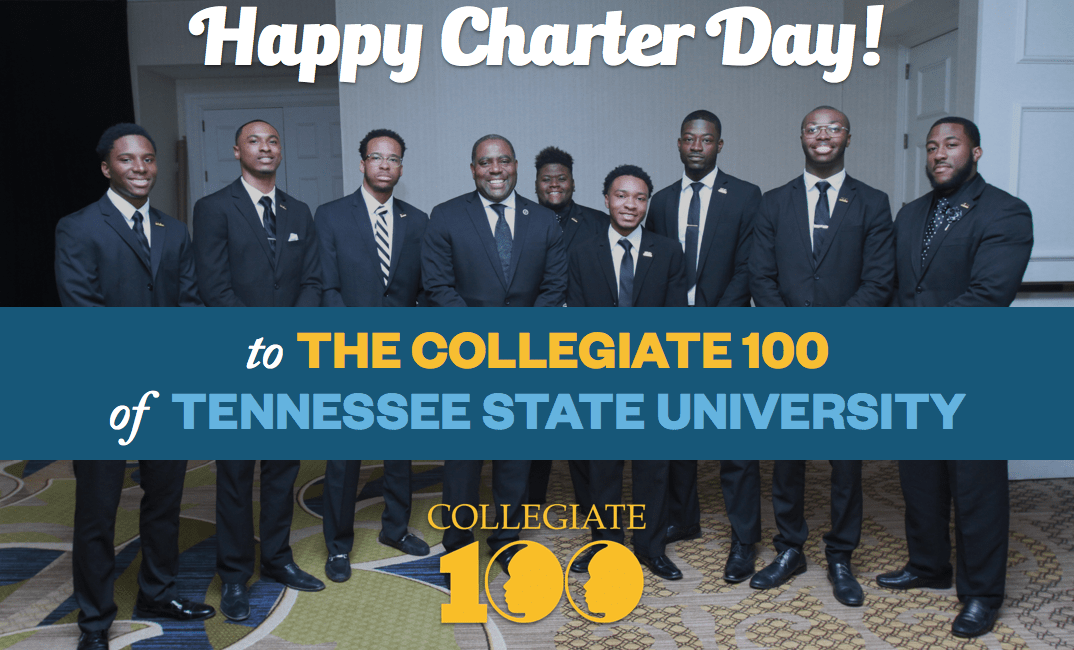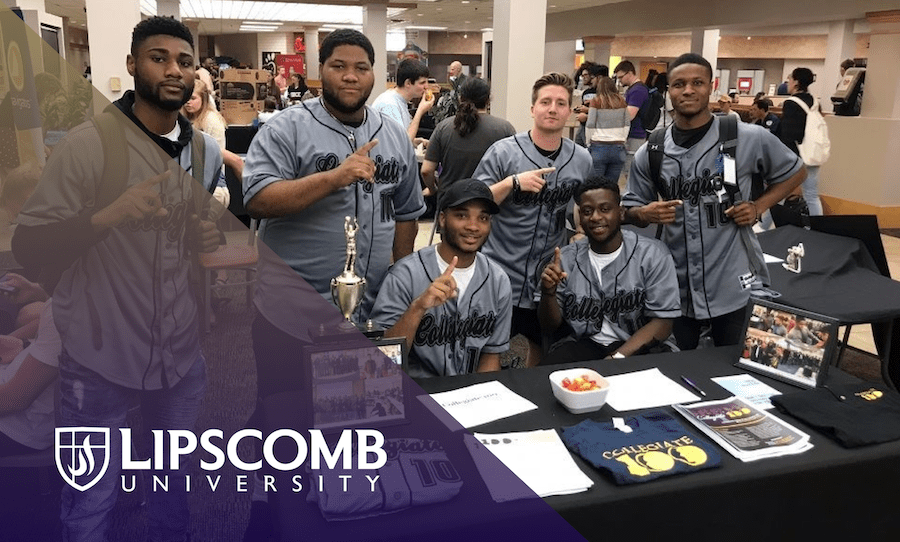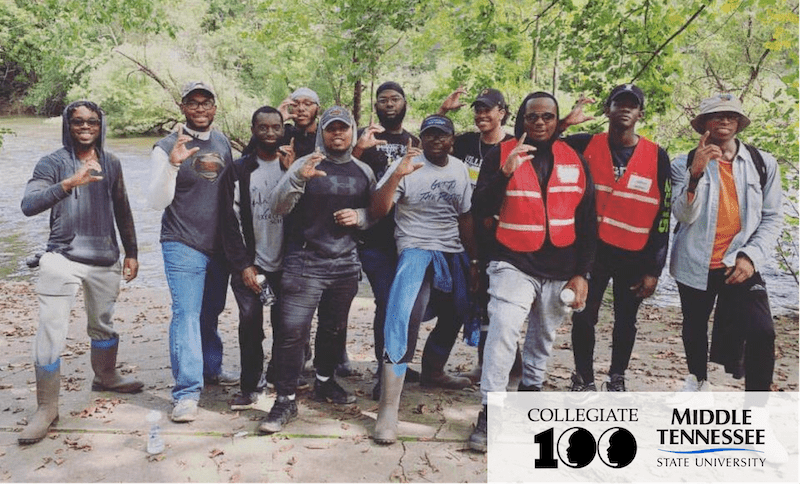


To accomplish its mission, the 100 Black Men of Middle Tennessee solicits the support of community volunteers to assist with the implementation of its programmatic efforts. One crucial component of this volunteer effort is generated through the services of collegiate volunteers.
The Collegiate 100 is not intended to operate independently from the 100 Black Men, but rather provide volunteers to carry out the mission and programs of the 100 Black Men. It is not fraternal in nature and does not include a pledging process to gain membership.
These young men share a common interest with that of the 100 Black Men of Middle Tennessee which is to enhance and improve the quality of life for younger black males of Middle Tennessee through mentoring and tutoring programs.
Collegiate 100 chapters were established on local college campuses throughout Middle Tennessee including Middle Tennessee State University, Tennessee State University and Lipscomb University. Each Collegiate 100 chapter has a faculty/staff advisor who is employed by or associated with the respective institution. The advisor, in some cases, is a member of the 100 Black Men.
The advisor is responsible for ensuring that the Collegiate 100 policies and procedures are carried out. The advisor also monitors actions undertaken by the collegiate group to ensure that they are consistent with the objectives of 100 Black Men of Middle Tennessee.
Criteria for Collegiate 100 membership:
- Be enrolled as a student in good standing at a college or university.
- Commit to tutoring and mentoring of black males.
- Maintain a minimum GPA of 2.5.
- Possess high moral character.
- Have a positive record of extracurricular activities.
- Have no felony record.
- Commit that upon graduation to maintain active participation in the Collegiate 100 alumni and aspire to become a member of 100 Black Men.
Although they are not official members of the 100 Black Men of Middle Tennessee, the Collegiate 100’s involvement and efforts toward the mission of the organization brings with it another powerful addition to the ongoing battle for productive educational opportunities for each and every child enrolled in the programs of the 100 Black Men.

